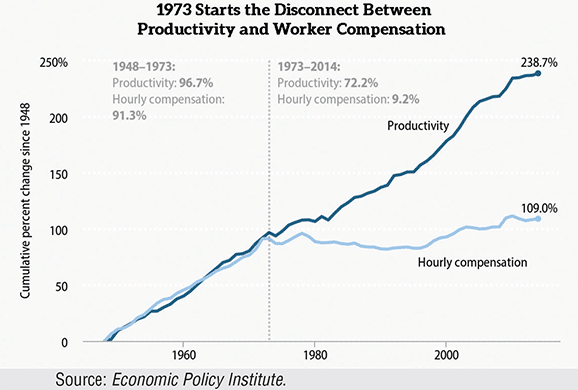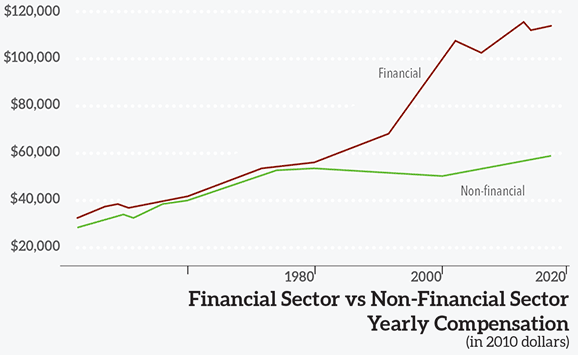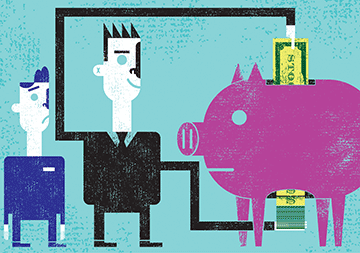Search News
For the Media
For media inquiries, call CWA Communications at 202-434-1168 or email comms@cwa-union.org. To read about CWA Members, Leadership or Industries, visit our About page.
Also in Winter 2015
- Stop 'financial strip-mining'
- Make the Connection: New Alliances Get Results in Fighting Against TPP
- Moving Forward: Public and Small Donor Financing of Elections
- Moving Forward: Automatic Voter Registration
- Moving Forward: Getting Big Money Out of Politics
- Moving Forward: Redistricting
- Critical Time For Our Democracy
- Make The Connection: Voter Suppression and Money in Politics
- The DI: Building a Movement for Political Change
- The Fight For Political Equality
- Making the Connection: Voter Suppression and Money in Politics
- How We're Fighting Back
Wall Street Greed Hits Workers' Wages
Real wages for working people (adjusted for inflation) have stagnated over the past 40 years. As CWA members, we've done better than that, but like all working families, we're up against the greed of Wall Street and the 1 percent. It's the financialization of our economy, and it's bad for working families and bad for our communities.
Workers' wages and productivity used to rise together. Since 1973, the gains from worker productivity started going, mainly into the pockets of company CEOs and Wall Street investors.

In the years since the Great Recession of 2007-2009, compensation for the financial sector versus everyone else has soared.

How Does So Much Wealth End Up in the Pockets of CEOs and Wall Street Firms?
Or...Stealing the Economy in 6 Easy Steps
1. Companies buy other companies using borrowed money.
Since the 1980s, corporate raiders, corporations and hedge funds have looked to take over any company they could. But here’s their secret.
2. Raiders use the assets of the targeted company to pay for the costs of the acquisition.
The target company is weakened because it has to pay back millions of dollars. Worse, the corporate raiders pay themselves from the assets of the acquired company, too, in fees and special dividends. The CEOs and bankers get their cut as well. Not much left to share with the workers from a once-successful company.

Stock buybacks result in the extreme concentration of income for the wealthiest and, at the same time, erode job opportunities for working families. (William Lazonick, Professor of Economics, University of Massachusetts, Lowell.)
3. CEOs get paid with stock incentives. That means when a company’s stock goes up, CEOs get even more money.
Unfortunately, in the U.S., most CEOs are focused on very short-term goals, like improving their own compensation. They most likely aren’t looking at long terms goals like increasing productivity or reinvesting in research and development. They aren’t interested in increasing workers’ real wages and benefits. So what does the CEO do?